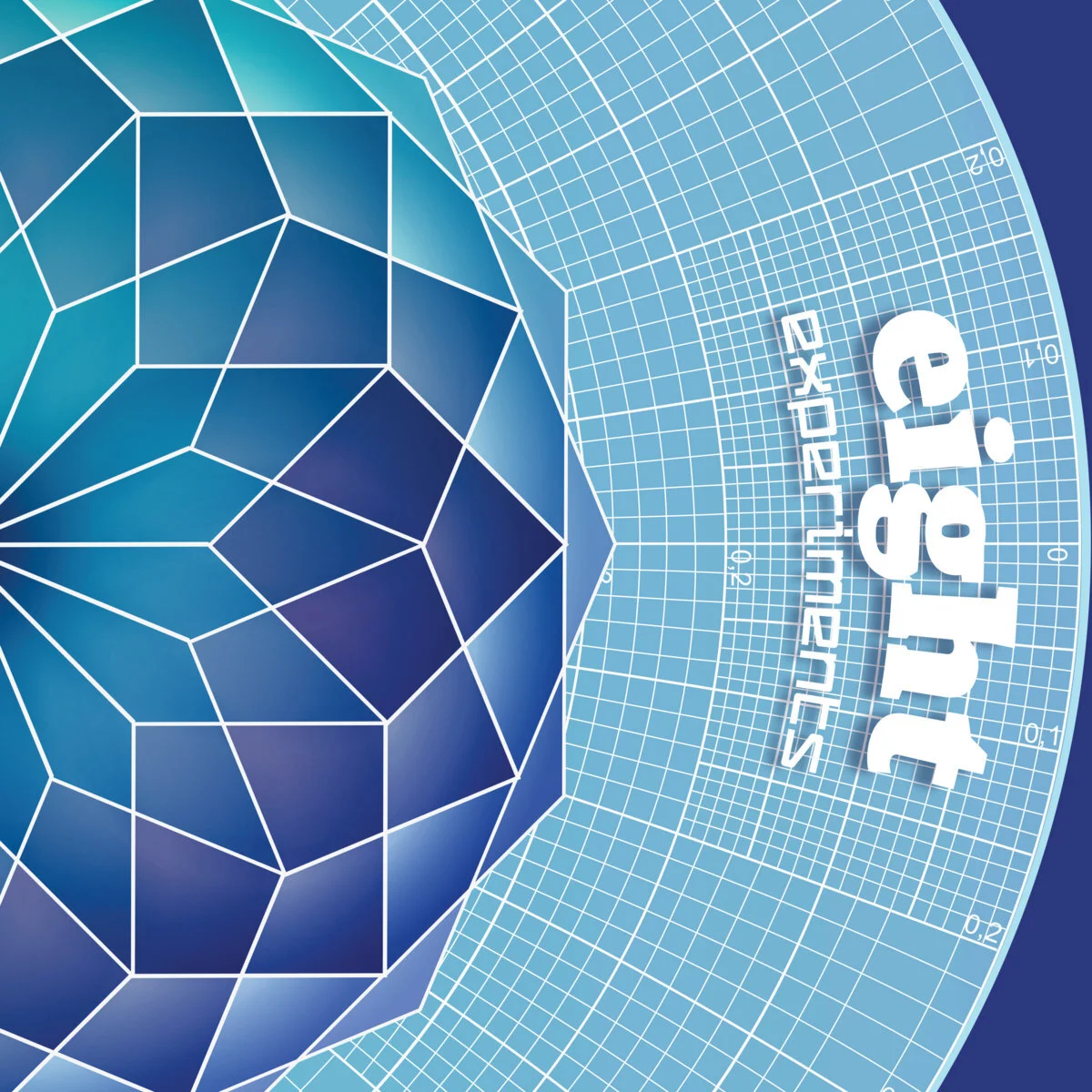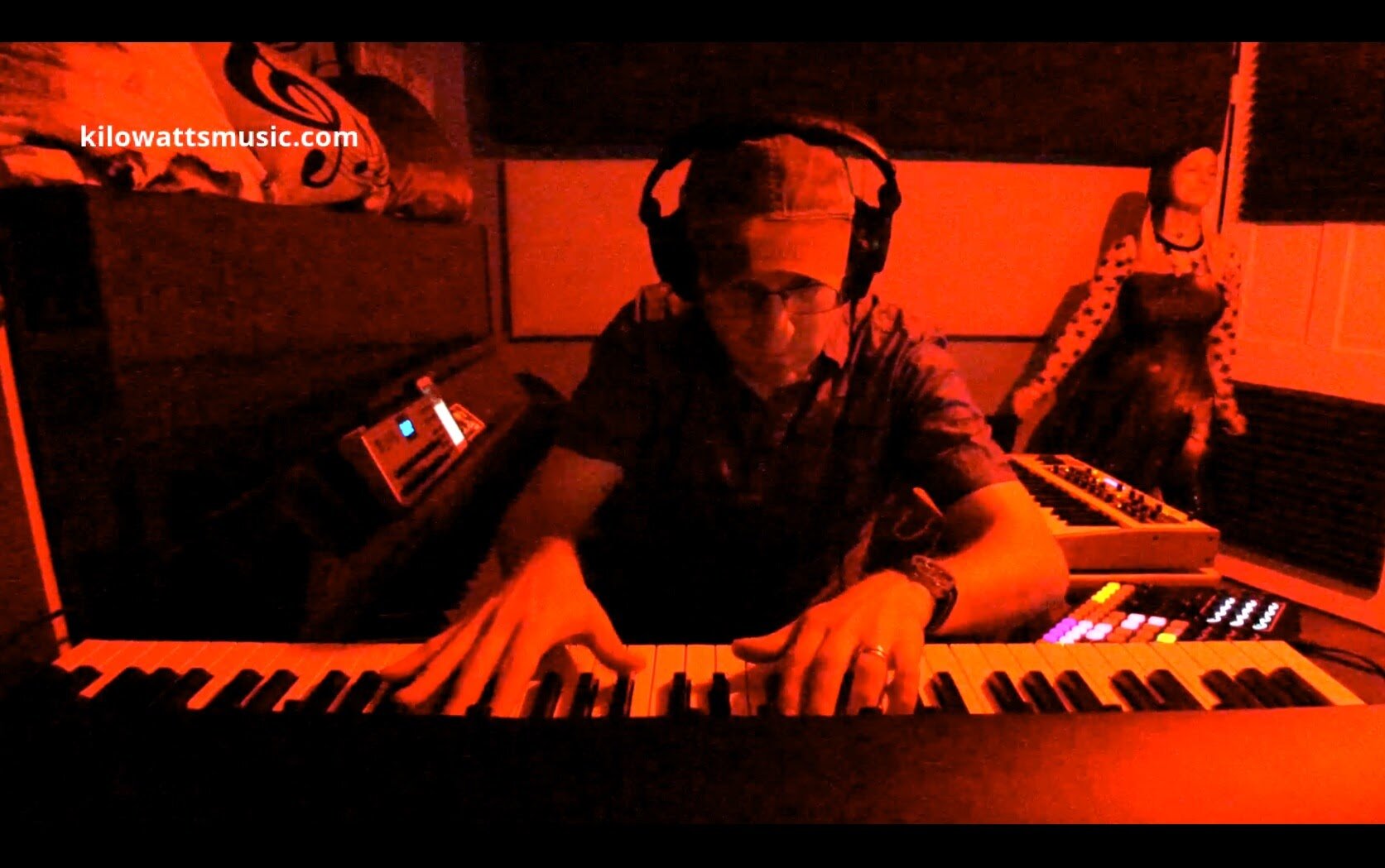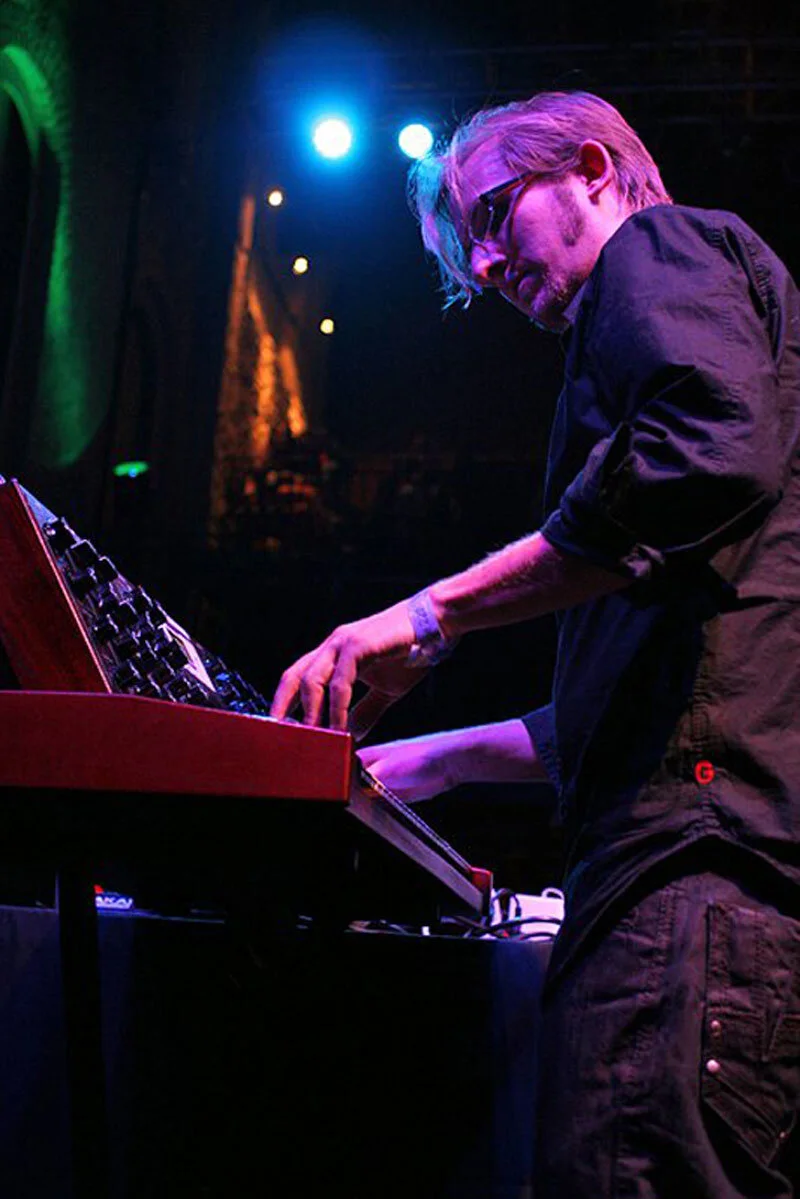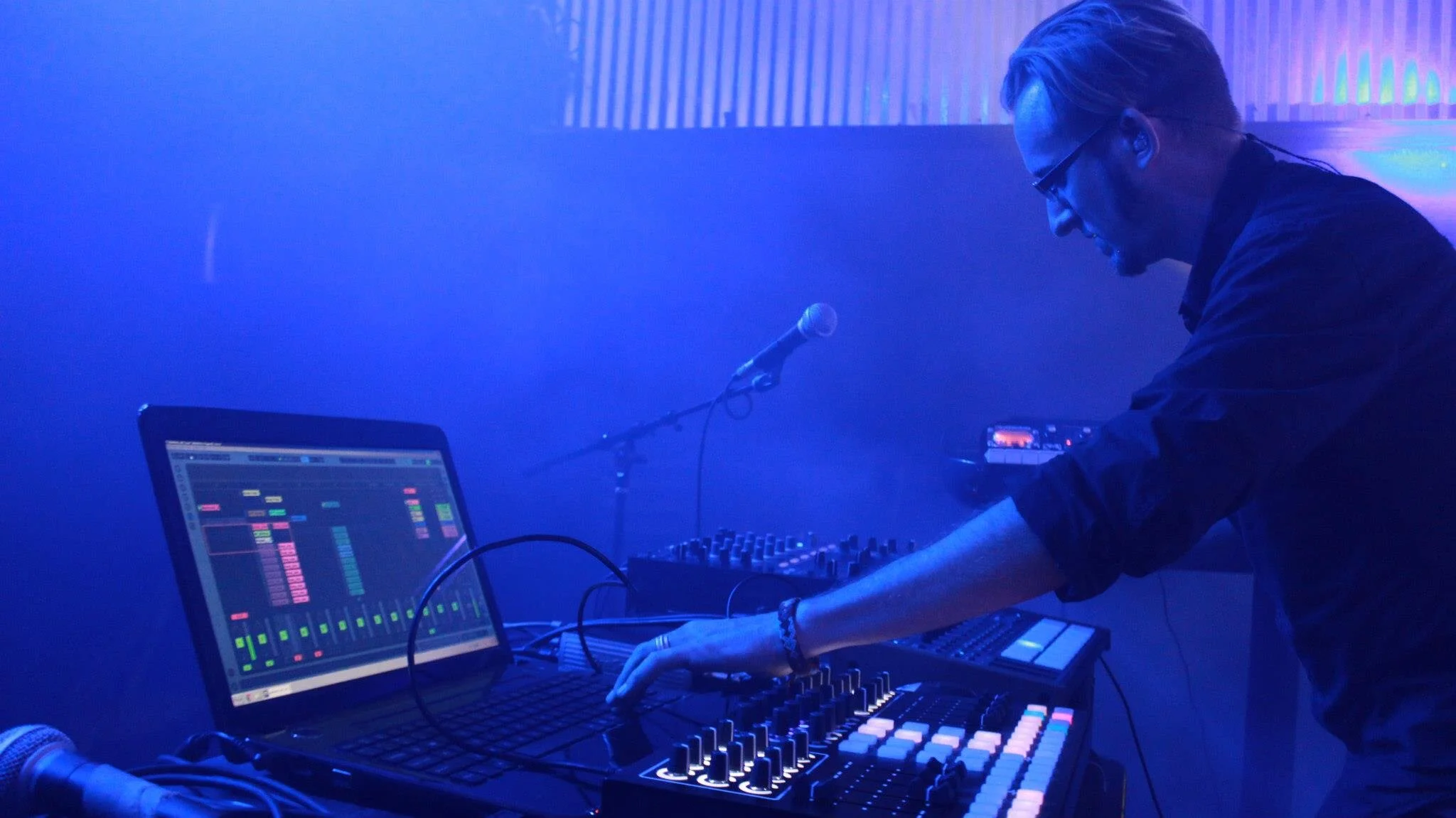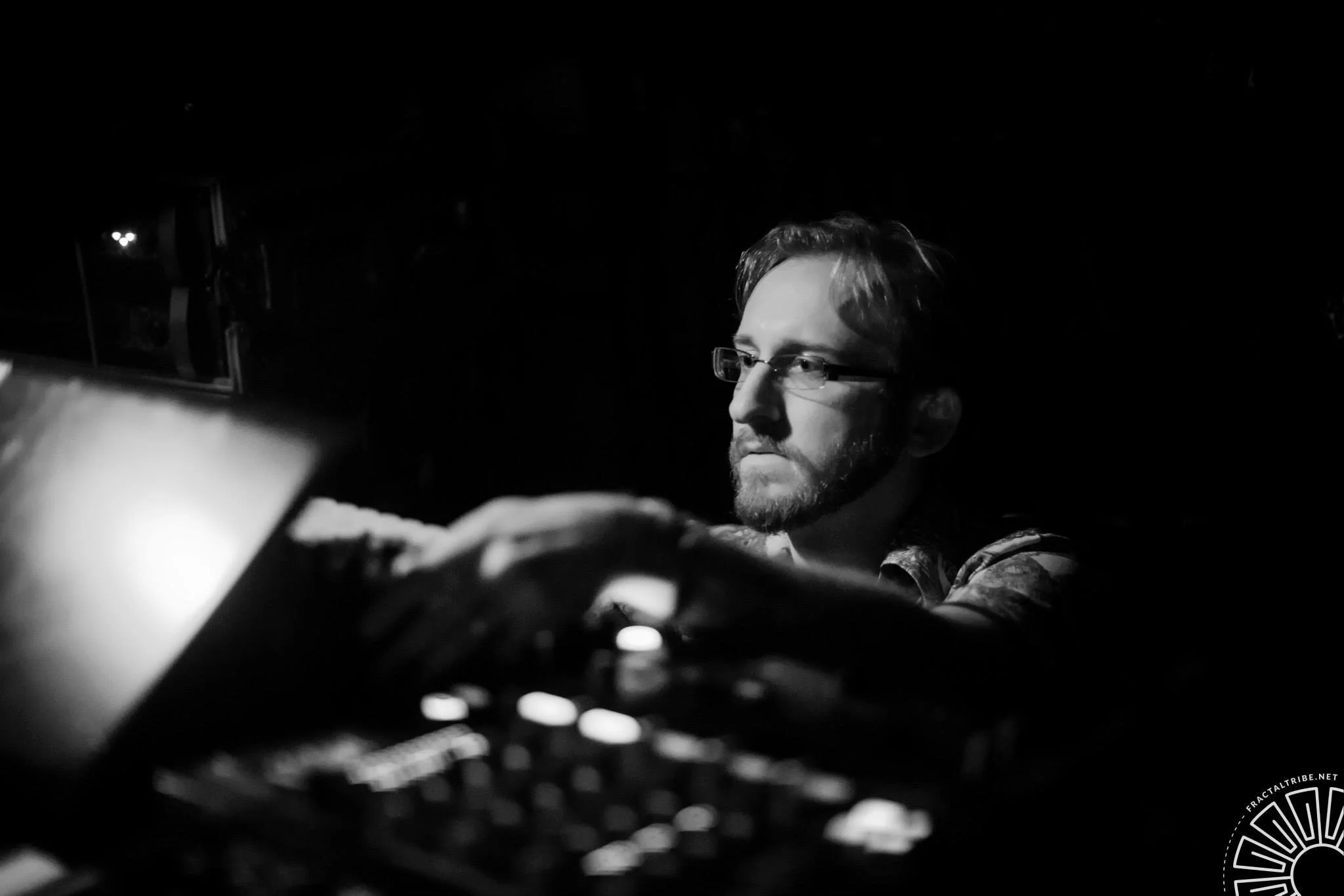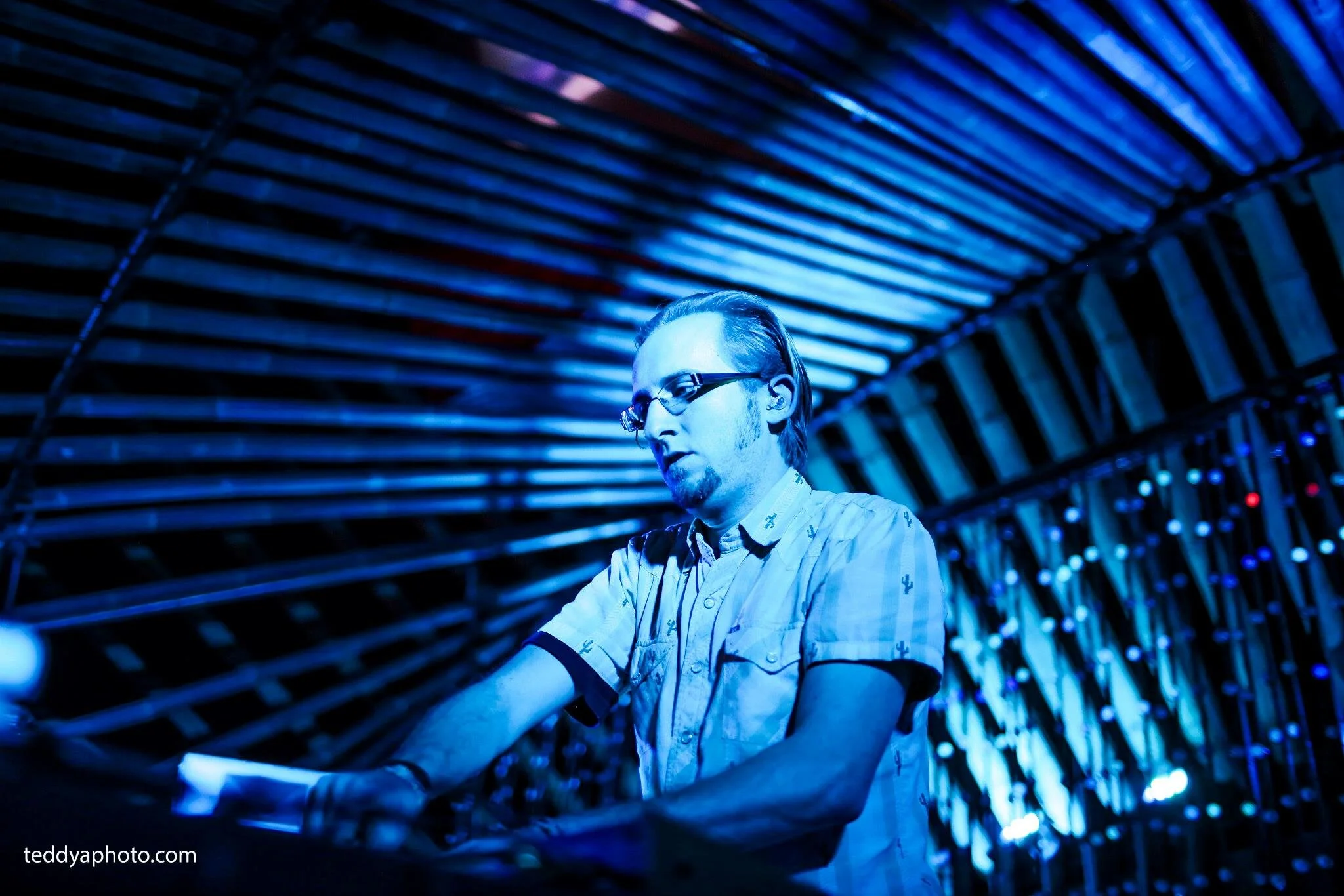KiloWatts
by Mister Mime
17th October 2020
Eight Experiments is a jovial auditory journey concocted by veteran musician KiloWatts that achieves a perfectly mesmeric sync between and electro-organic sound and a melodic atmosphere. This breezy and soothing summer jaunt is one of the most exemplary pieces of electronica that I have laid my ears on this year.
MM: What is 'Eight Experiments’ about? How do the track titles reflect the journey of the music and are there any stories behind the conception of any of the tracks individually, or the record as whole?
KiloWatts: I think on the surface it's about as straightforward as you can get. "Hi, here's a collection of experiments that turned into songs." I'm not sure it has much of a conception by itself, in that it's (so far) the third in a series of similar collections. Six Silicates and Seven Succulents all have a similar tempo, beat structure, and mood. To me there's more of a story in the fact that this rather light-hearted album comes on the heels of a rather sad, grief-laden album (Sympathetic Vibrations). After what turned out to be such a massive cathartic experience, it was truly a breath of fresh air for me to write Eight Experiments, a care-free album celebrating music with no rules heading into the lighter part of the year.
MM: Can you tell us about the artwork?
KiloWatts: Kris Northern constructed the artwork and did an incredible job. He said the color palette is derived from a specific type of Fluorite mined from the Okorusu mine. What I love about working with Kris is his ability to see beyond the boundaries of the art itself. The piece you see on the front (and back) of the vinyl is actually a cutout of a larger design that extends far beyond the bleed lines. I thought that was cool.
MM:What was your creative process like transforming feelings into sound for this album? Did you begin with some emotions, incidents from your life, or musical motifs, certain sounds perhaps…? Or from a technological angle…piece of gear? And how do you usually tend to develop the nascent idea into a complete piece of music?
KiloWatts: You know, I have so many things happening in life now, and even though music occupies a decent chunk of that, it's still a balancing act. I have to schedule my studio time and ensure that something productive comes out of it with the time I have available. These tracks began with very simple ideas, which were expanded on very systematically over months, but I think with each one the original idea became the main seed of the track, and it expanded outward from there. I think the time spent outside of the studio is as valuable as the time spent in it. You can plant a seed in your mind for a track and let it grow so that when you're in the studio you're doing a direct brain-drop into the DAW.
MM: How do you plan out and structure your studio time in such a way that ensures something productive comes out of it? In electronic music, for me at least, I find this to be a crucial question, with there being no real boundaries or limitations in a sense. Is it about developing a personal workflow that is able to convert the mood of the day into the resultant finished product of sound?
Kilowatts: I have designated days and times of the week for studio work, and commit to them without fail. This is significantly different from my process a decade ago, which was "live in the studio 24/7 and be ready to make music whenever the mood strikes". There's nothing wrong with that, of course (in fact, it's awesome) but there is not time for much else since you are standing by as a satellite constantly pointed into the sky. So I'm in my 40s now and everything is organized by time. For instance, I'll start a new track on Monday, then go about other work Tuesday and Wednesday, dedicate a few more hours Thursday evening, and let it simmer over the weekend. This gives me a chance to drive around and listen in the car, make mental notes, and brainstorm a bit on the next move. I'll set up cables or install new software if necessary. By the time I'm back in the studio I have already worked out a plan what to do and how to execute it, so it's a direct transcription and it easily opens the door for something new and exciting to happen. It eliminates the grunt-work so there's no wasting precious creative time in the studio. I'll be honest, as someone who used to eat and sleep in his studio 24/7, I had my doubts about whether I'd be able to do it this way. But it works!
MM: How did you go about incorporating instruments like the guitar, piano and handpan, and aesthetically blending them within the framework of electronic music?
KiloWatts: The disconnect between electronic and acoustic music has always bugged me, but I think those lines have finally gotten super blurry. I was just thinking the other day how I miss explaining what electronic music is to most people. People will ask "Oh, what kind of music do you make?" and I'll habitually go on a tangent about electronic music and how it involves buttons and knobs and stuff. Everyone already knows now. What used to be cutting edge and relatively unknown is now fully ingrained into the collective consciousness. So it's not a big deal now to get into the studio and lay everything down, no matter what it is. Everything is an instrument, and we have so many examples now of them all working together.
MM: Absolutely…the cliche still stands as it is, though the lines definitely have been blurred. Not just between instruments and genres, but also between musical cultures around the world.
Kilowatts: That's funny, we actually listen to a lot of Indian classical around here. It's not uncommon to hear a raga gently vibrating through the air. Regarding machines, absolutely. A few weeks ago I was kinda searching through generic stock images depicting music-related stuff, which usually results in images of pianos, guitars, treble clefs, and violins, but I was happy to see drumpads and knobs and machines stacked right up next to all the rest.
MM: How do you get a realistic drum/rhythmic feel while programming your drums and percussive elements, and the right balance between an acoustic and electronic drum sound? For example: the electro-‘Rock’ drum sound on Agitation.
KiloWatts: Does that sound realistic? Dynamics are pretty important, but the absence of it can also be appealing. I'm in love with the attention given to 80s aesthetics nowadays and especially oversaturated reverbed snares. Those were always played live, but we can sequence them and have it sound pretty good too. I know too many real drummers to try and recreate the sound, but a well-placed massive cymbal crash still has a pretty solid effect. I think these tracks deliberately stop short of fully replicating realness, and fall into synthetically sequenced loops using real samples.
There's no sense in forcing a machine to perform like a human. I've been guilty of this in the past by using synthesized or sample-based pianos, but that was mostly because I didn't have the space or money for one of my own. And now, of course, I know how to tune pianos, which actually makes it super hard for me to listen to my old untuned piano recordings, but that's another story!
I acquired a piano in 2012 and became fascinated with it and wanted to learn how to tune it and improve its playability. That turned out to be a massive rabbit hole because it turns out that if you are going to spend the time learning how to fine-tune such a complex instrument, you should be ready to provide that service to others. Not many people know how to be a piano technician, and it's very high in demand. It works for me because I am naturally drawn to audio-related activities, and I like to meticulously take things apart and put them back together. It also appeals to me because I'm really good at getting rid of creaks and squeaks in things. It naturally drives me up the wall, and figuring out how to get rid of them is a huge part of making a piano better.
MM: Genres: classical, rock, jazz, techno, funk, ambient : What is your take on the concept of genres and how do you draw elements from various styles of music to create your own sound?
KiloWatts: Ah they're great. Genres bring us together, and if you're a pretentious elitist, keeps us apart. I've always seen them as auditory collaborative ledgers. A genre is a creative incubation chamber where ideas bounce off the walls and are replicated and expanded upon, until they reach a certain critical mass and bust a hole in the wall leading to an entirely different incubation chamber. I grew up on classical music and cut my teeth on electronic music. Electronic music always gave me the freedom to have all the instruments at my fingertips, and thusly incorporate all the sounds that have inspired me together.
Electronic music really developed in genres, which I think was kind of important to keep it from being a formless gelatinous goo. I think it gives people a chance to really focus on a particular sound within a certain framework, thus revealing its potential that may not have been appreciated otherwise. It's also just a good starting point for making a track, especially since there's a pretty good chance of unintentionally falling outside the boundaries. But you have to start somewhere.
MM: What do you think about fast vs. slow electronic music? In Drum and bass for example, there isn’t much space between the notes, so what do you think is the quality in that genre that replaces that Silence?
Kilowatts: I think the individual sounds have to become more pointed and focused, so as to allow more space. Drum and bass developed over the past decade in that direction, with super high fidelity production, and really fine tuned synthetic sounds... Especially the output from Invisible Recordings sounded absolutely incredible. But the space was there because the sounds were smaller, more minimal. That's where really tight reverbs can really shine, in small spaces where you can barely detect it.
MM: How do you choose the tempo range that you want to make music in? How do you see the relation between tempo and the emotion/mood of music?
Kilowatts: Honestly most of the time I pick a random tempo unless I'm aiming for a particular style. A random tempo keeps me on my toes though! I think any emotion/mood is possible with any tempo.
MM: What are your interests outside of music? I noticed a lot of natural themes woven into your work, and also a bit of gastronomy (Pasta - EP). And what about other art forms like visual art, poetry, etc.?
KiloWatts: Hah! Well I mean, who doesn't love pasta? Yeah I like succulents and crystals as well. I like repairing my Jeep, gardening, hiking, home automation, and piano repair. Lately Lynne and I took a birding course and have been going out every weekend with binoculars. Birding is actually a lot more difficult than I expected. You wouldn't believe how many types of sparrows there are. But yeah, it probably all ties to a need for quiet and the serenity of the wilderness. I know a lot of producers who deeply desire silence in their off-time. Makes sense.
MM: I didn’t know that those fleshy plants were called succulents…you learn something new each day eh! So birding is bird watching right? Connecting with nature is the ultimate reset and grounding. I find it very difficult to be down and out around flora and fauna. That being said, I don’t get enough of it living in the city.
KiloWatts: Yeah, bird watching. They're everywhere, those birds. There's probably a lot of opportunities to see them even if you're in a city. It has taught me to slow down and pay attention to my surroundings, and it has shown me there is so much more going on around me than I never noticed before.
MM: You have a vast and consistent discography and a long artistic career. What is your advice for artists and producers that are relatively new?
KiloWatts: I received some key advice from an artist here in Philadelphia named Alan Bell. Before I wrote “Sympathetic Vibrations” I was in a lot of grief and unsure if I would be able to find my way back to music. He told me that art reveals the inner world, which is within all of us. When we show that inner world to someone else, it blasts away the perceived sepa"ration between us as humans, allowing us to see eye-to-eye and connect on so many levels. I'd just expand on that by saying that life is long and full of all sorts of twists and turns at every corner. Music is something that ties it all together, so if you can figure out how to turn your life experiences into music (or art) and share it, with even just one other person, you're golden.
MM: That’s absolutely true. ‘Perceived separation’ is exactly what it is, and I feel the most essential function of music and art is to do just that. What was your experience like during those times of grief? Were you questioning the worth of your music itself? Or were those feelings blocking you from creating music?
A very reputed Indian drummer once told me,”Music is great but if you aren’t becoming a better person in the process, then you’re doing it wrong.” Do you have any thoughts on this?
KiloWatts: Grief is just a powerful thing, and as someone who transcribes stories into music, it's hard to tell a story when the story has not yet reached a conclusion. So, sometimes there is a need for silence. And silence is part of music, otherwise it would just be noise. Or, to sample The Sterenerds: "Funk is what you don't play."
I like that quote about becoming a better person, and that makes complete sense. In fact, everything you do should be making you a better person, but music is a particularly funky way of doing it!
MM: I don’t hear a lot of grief or pain in your music. Rather, I would say it is grief converted into beautiful music. How do you decide what you want to make of the grief or any such “negative” emotion? I suppose that’s where the silence, and patience comes in?
Kilowatts: Well, I don't classify grief as negative, only because I believe it stems from compassion. Grief is the loss/absence of love, but it also implies that the person grieving yearns for that love. So it's a bittersweet yearning, which makes for great music because it draws directly from that deeply personal inner world. And we producers are often sitting alone in our studios where we can really tap into that. So the music kind of takes on the role of soothing the crying child, which is a universal feeling. This isn't to say that I deliberately seek out grief in music, but doing so has been a huge part of my own healing process. I'm actually a very happy person most of the time :D
You Can Follow KiloWatts on:
https://kilowatts.bandcamp.com/album/eight-experiments
https://soundcloud.com/kilowatts
https://www.facebook.com/kilowatts
All Images courtesy of KilloWatts
